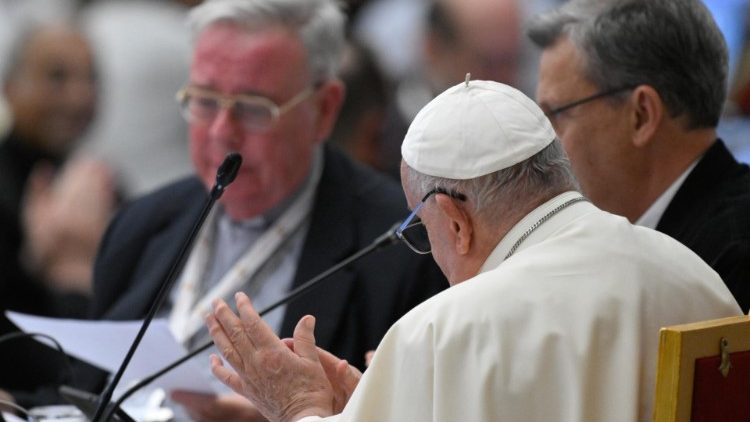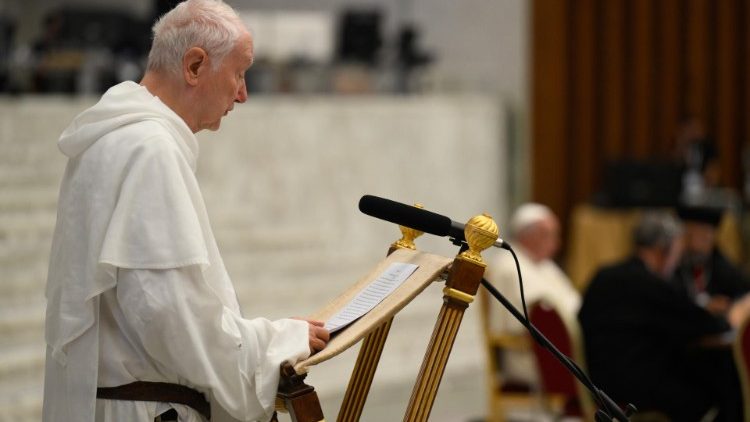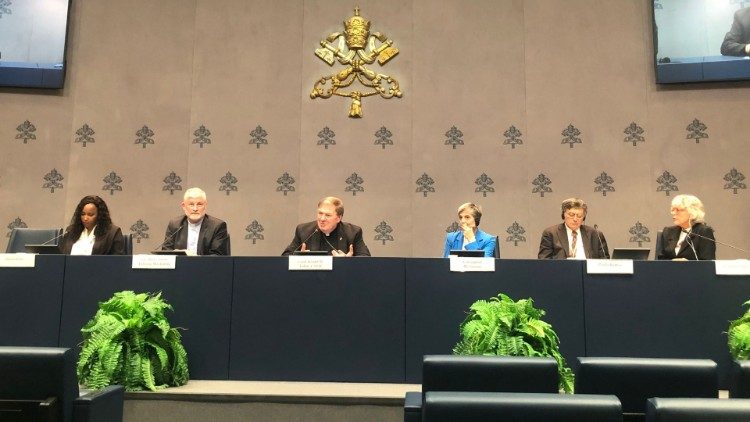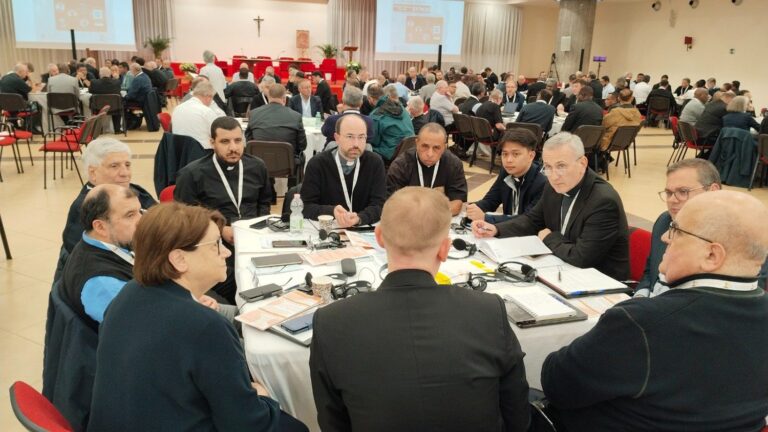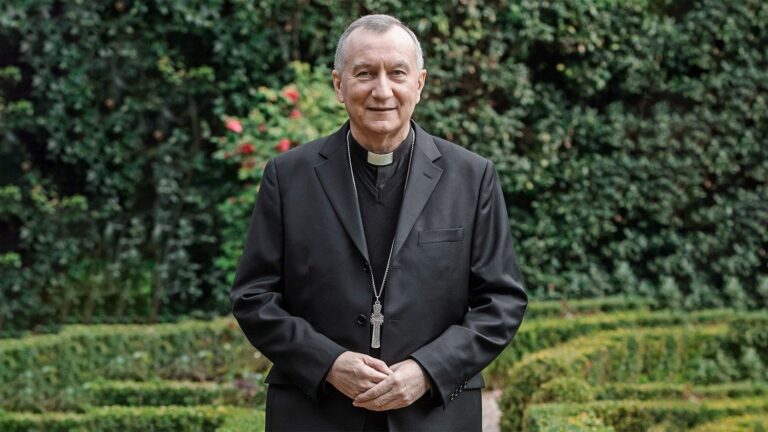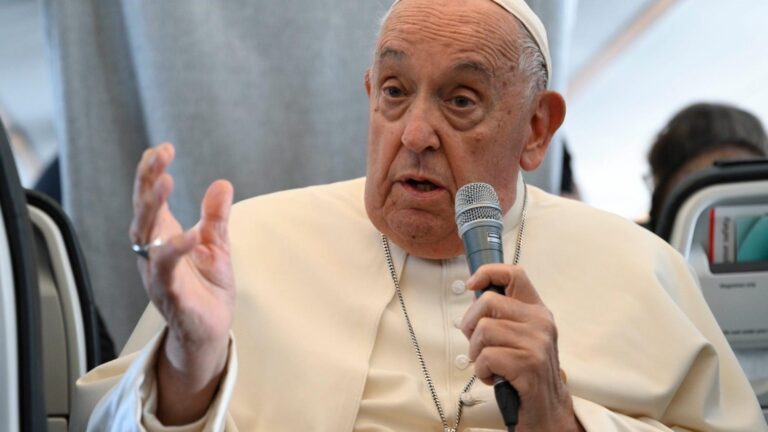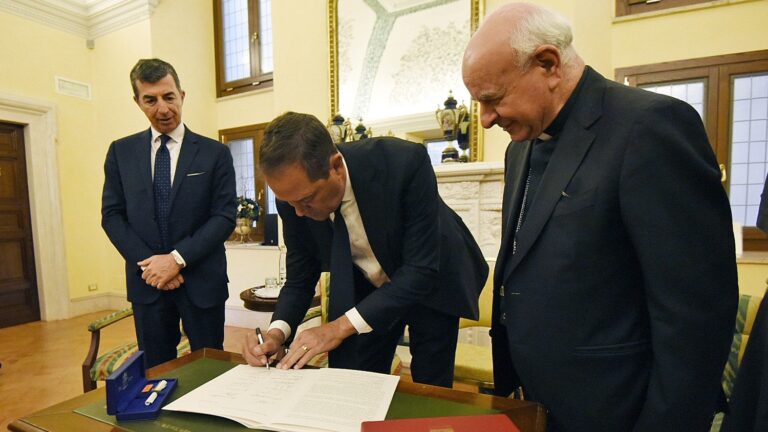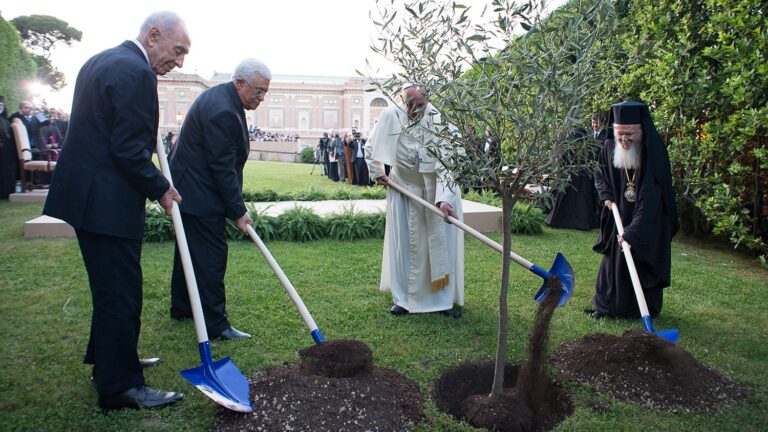Synod Briefing – Day 9: Care of relationships
The press briefing of the Synod on Friday was presented, as usual, by the president of the Commission for Information, Dr. Paolo Ruffini, assisted by Dr. Sheila Pires, secretary of the Commission. Guests at the conference included Cardinal Joseph Tobin of Newark, USA; Dr Giuseppina De Simone, witness to the European synodal process; and Bishop Shane Mackinlay of Sandhurst, Australia.
By Christopher Wells
During the daily press conference on Friday afternoon, Dr. Sheila Pires emphasized that the central theme of this module is the care of relationships, both within the Church and between the Church and the world.
Transparency, training, accountability
This attention, she stressed, must be based on trust, transparency and consistency. Dr. Pires also highlighted Cardinal Hollerich’s insistence on the need for integral formation to form Christians prepared to be witnesses to the mission, keeping in mind that ecclesial discernment differs from questions of management techniques .
Pires highlighted Cardinal Hollerich’s call for the development of participatory and transparent decision-making processes within the Church, as well as the need for accountability through the continuous evaluation of the work of officials within the Church.
Process of transformation in the Church
Turning towards the reflection of Father Timothy Radcliffe At the start of work on the third module, Dr. Pires highlighted the comparison made by the Dominican spiritual director between the transformation processes within the Church and Jesus’ interaction with the Canaanite woman in the Gospel.
Father Radcliffe said Jesus’ silence demonstrated a moment of deep listening which can be a model for the Church’s attempts to listen to the cries of those who suffer and address the complex issues facing the Church is faced today.
The Dominican preacher’s reflection also highlighted the question of the relationship between equality and difference, particularly in the context of different vocations and roles in the community of the baptized.
Finally, he stressed the need for attentive and continuous prayer and the importance of resisting the urge to find immediate and simplistic answers. Jesus’ response to the Canaanite woman, Father Radcliffe noted, shows an openness and welcoming regard for those who are different.
The work of the Synod in the coming days
Following Dr Pires’ report, Dr Ruffini provided an overview of the work of the Synod over the coming days. On Friday afternoon, the Assembly will hear reports from the different language groups before voting on the agenda for further discussions, which will begin on Saturday morning.
Dr. Ruffini also invited everyone to participate in the Synod’s Ecumenical Vigil, which will take place on Friday evening in the Square of the Roman Protomartyrs, next to St. Peter’s Basilica. He noted that more than 80 parishes around the world will hold prayer services in conjunction with the vigil taking place in Rome.
Tobin: More emphasis on prayer and silence
Three guests were also present at the press conference: Cardinal Joseph Tobin, C.Ss.R, of Newark, USA; Dr Giuseppina De Simone, witness to the synodal process representing Europe; and Bishop Shane Mackinlay of Sandhurst, Australia.
In his speech, Cardinal Tobin discussed some of the differences between the current synod and previous synods he has attended. He highlighted in particular the preparatory phase of the synod, which involved efforts to reach everyone, rather than just listening to selected groups.
The American cardinal also noted the increased emphasis on prayer and silence during General Assemblies and highlighted the increased role of specialists, such as theologians and canonists, during the second session of the current General Assembly.
From Simone: A great sign of hope
Dr. Giuseppina De Simone, whose academic work focuses on the relationship between philosophy and theology, as well as phenomenology, also highlighted the methodology of this Synod meeting, saying that the innovations in the preparation and work of the Synod are truly significant , even revolutionary. .
She maintained that the current synodal meeting is already a “great sign of hope” which offers something to the Church of our time and to humanity as a whole.
The result of the Synod, she said, is precisely the idea of in-depth and rigorous reflection done together, based on mutual listening. She also emphasized the importance of silence, which she described as an ability to “live with” the questions facing the Synod and not seek immediate, simplistic answers.
As previous participants have done, Dr. Simone highlighted the “beautiful” image represented by the tables, where everyone is represented on an equal footing.
The significant presence of theologians at the tables is also a great sign, precisely because of the need for “technical and specialized knowledge”, which must nevertheless avoid the dangers of becoming elitist or losing touch with the reality of daily life.
Mackinlay: The Synod and Plenary Council of Australia
For his part, Bishop Mackinlay spoke of the similarities between the Synod on Synodality and the Plenary Council which has taken place in Australia in recent years.
He noted in particular the representation of all the people of God alongside the bishops; the methodology of conversation in the Spirit; and the different stages of the consultation; as well as the distribution of the General Assemblies between the common points between the two ecclesial events.
Bishop Mackinlay also noted that similar topics and themes were raised at both meetings, reflecting similar concerns and hopes expressed by God’s people in Australia and around the world.
As the Plenary Council of Australia made important and valuable decisions, Bishop Mackinlay highlighted the change in church culture as one of the most important fruits of the process. “We have changed the way we understand the Church in Australia, the standard way of approaching things,” he said, adding that he believed the same thing was happening at the Synod.
Concluding his speech, Archbishop Mackinlay highlighted one of the challenges facing Synod participants, saying they are still working to determine how to use the processes of discernment and the method of conversation in the spirit “most effectively possible” in decision-making. He described the transition from listening and discernment to resolving difficulties as “difficult.”
At the same time, he suggested that it might be useful to bring together different models and paradigms that could serve as models for decision-making.

